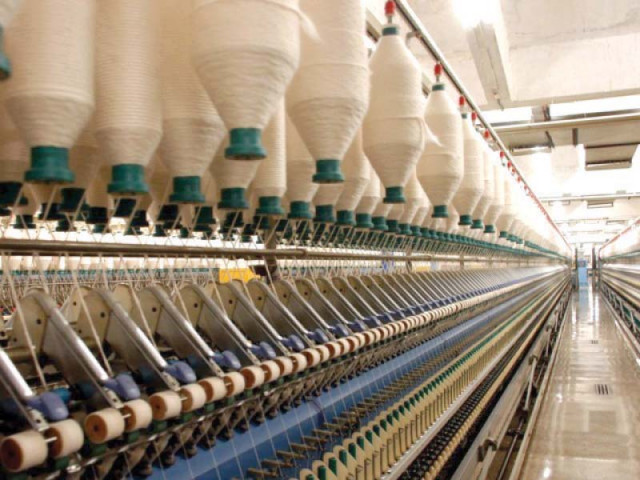Impact on agriculture: FCCI calls for policies to deal with climate change
Says cotton output has gone down due to effect of weather

Government should re-prioritise its strategy with a focused approach on the textile sector, which is the mainstay of the national economy, the FCCI chief said. PHOTO: FILE
In that connection, he said focused and sustainable economic policies were a must to deal with the emerging challenges. He was talking to a delegation of the Sustainable Development Policy Institute (SDPI) at his office on Wednesday.
He said industrialists kept an eye on the availability of raw material which could be easily arranged from any part of the world, but the situation became challenging when prices soared due to shortage in markets.
According to Sheikh, Pakistan had harvested a bumper cotton crop of 14 million bales just a few years ago but due to climatic changes coupled with policy-related issues it has now dropped to 10 million bales.
Some exporters also have to import long-staple cotton for their export products as Pakistani cotton has a short staple. He added that due to the deteriorating law and order situation, energy crisis and ad hoc policies, more than 20 major export-oriented units in Faisalabad had been closed down, which rendered hundreds of workers jobless in addition to depriving Pakistan of at least $1.5 billion in foreign exchange.
He said Faisalabad had an agriculture university and other important research institutes, which were constantly working on climate change. “Scientists are engaged in evolving new heat-tolerant varieties, which could result in maximum yield with less irrigation needs,” he said.
Sheikh said the global meltdown had resulted in a steep decline in foreign remittances and exports. In this changed scenario, “the textile sector is the only panacea that not only generates much-needed revenue but also provides jobs to millions of workers.”
He proposed that the government should re-prioritise its strategy with a focused approach on the textile sector, which was the mainstay of national economy. He said in the first phase the government should revive sick units that had the capacity to earn $1.5 billion. He also underlined the need for the appointment of a textile minister who could pay full attention to the revival of declining textile exports.
Published in The Express Tribune, November 17th, 2016.
Like Business on Facebook, follow @TribuneBiz on Twitter to stay informed and join in the conversation.



















COMMENTS
Comments are moderated and generally will be posted if they are on-topic and not abusive.
For more information, please see our Comments FAQ